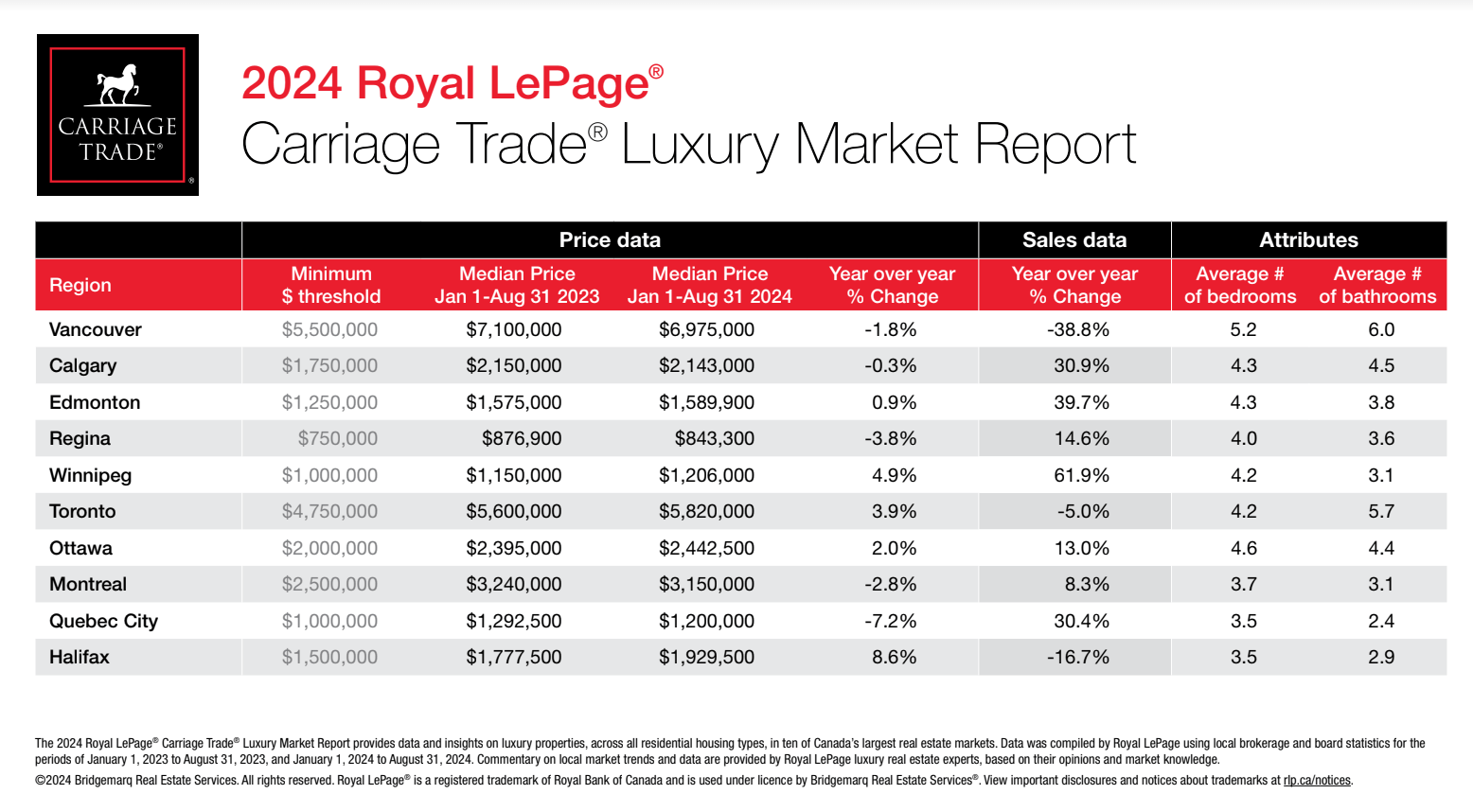Luxury real estate in Canada’s biggest markets has been stable, with fewer price fluctuations compared to the mainstream housing market.
The 2024 Royal LePage Carriage Trade Luxury Market Report, released today, notes that luxury home sales were up in the first eight months of 2024 compared to the same period last year, except in Vancouver, Toronto and Halifax. Prices rose slightly in some regions and dropped slightly in others.
‘Buyers in this segment know what they want and they are willing to wait for it’
“Homes typically trade hands at the high end of the market at a slower pace than we see in the industry overall, as the funnel of potential purchasers narrows as the price of properties climbs. This affords luxury buyers the luxury of acting more deliberately, taking their time in a quest to find exactly the right home,” says Phil Soper, president and chief executive officer, Royal LePage.
He explains that although market conditions can vary from one location to the next, luxury real estate market dynamics nationwide stay consistent: “Buyers in this segment know what they want and they are willing to wait for it.”
Standout regions
Luxury markets in the Prairie provinces, led by Winnipeg, Edmonton and Calgary, recorded some of the largest sales increases, reflecting strong demand.
Quebec City also saw significant growth in luxury sales.

Luxury market activity driven by consumer confidence
Luxury buyers, often less impacted by high interest rates and the need for mortgages, are driven by confidence in the broader economy and macroeconomic factors. In some regions, high construction costs are fueling demand for turn-key resale properties, while in others, buyers prefer to build custom homes despite extended timelines.
“Luxury buyers typically have the means to be picky … Often, their decision whether to buy or not is driven by their confidence in the health of the overall economy and the direction they see housing prices headed. Our research shows those in the higher end of the housing market have a very positive outlook on the long-term stability and appreciation potential of Canada’s housing stock,” notes Soper.
Foreign buyer ban has minimal impact
While the federal government’s two-year ban on foreign buyers, implemented in January 2023, briefly reduced demand in some affluent markets, it has not significantly impacted luxury property prices or inventory levels.
With the ban extended until 2027, Soper notes, “Two years in, and the prohibition on foreign buyers has had virtually no impact on housing prices in Canada, as we expected. Prolonging the international buyer ban will not make housing more accessible to Canadians.”
He explains that the key issue is the upward pressure on prices continuing as long as supply fails to meet the demand for homes.
Experts in all major Canadian cities expect to see brisk activity in this fall’s market.
Review the full report, including regional summaries.













